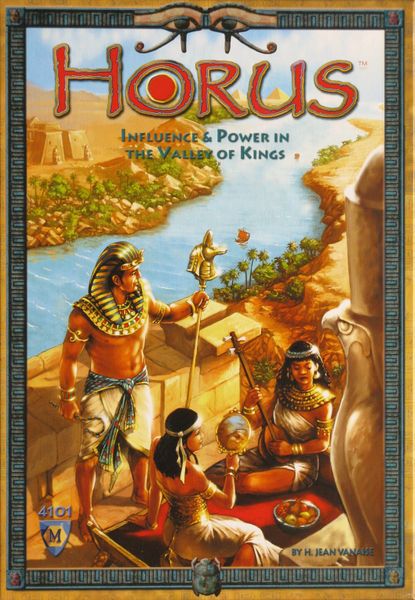Horus (2008) Board Game
Horus is a board game released in 2008, designed by H. Jean Vanaise and published by Mayfair Games. The game is set in ancient Egypt and revolves around territory building and area majority/influence mechanics. With beautiful artwork by Pete Fenlon and Michael Menzel, Horus offers players a strategic and engaging gameplay experience.
Game Components of Horus
How To Setup Horus
Setting up Horus involves creating the map by placing tiles, which will form the various regions of the ancient Egyptian kingdom. Players start by drawing a set of tiles and cards, preparing the foundation for their influence and area control strategies.
Gameplay Mechanics and Game Objective
Player Experience
Horus is described as a “gamer’s game” version of Carcassonne, offering a competitive and cutthroat experience. The game mitigates the luck of the draw with a brilliant card mechanism, providing depth without overly complex rules. Despite its initial appearance as a bit dry, Horus packs mean tile placement and area control strategies into a game that lasts less than an hour.
Pros
Cons
Personal Thoughts on Horus
Horus is ideal for experienced gamers who enjoy strategic tile placement and area control games. It fixes many of the issues found in Carcassonne, such as luck of the draw and runaway scoring, making it a more engaging and competitive experience. If you’re looking for a game that offers crunchy decisions without too many rules, Horus is a great choice. However, it may not be the best fit for casual or new players due to its strategic complexity.
We are supported by our audience. When you purchase through links on our site, we may earn an affiliate commission, at no extra cost for you. Learn more.

